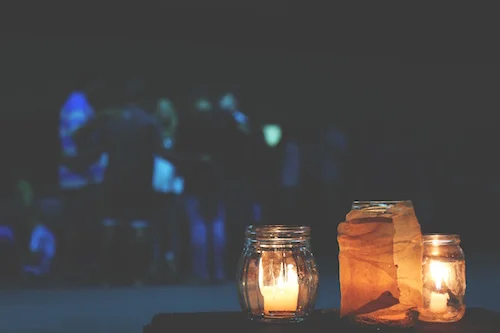I cannot make my neighbors less fearful, uncertain, or afraid. I cannot change the world or stop the violence. I can, however, in my little place on the margin of life, faithfully seek to live, think, and speak hopefully. Perhaps it will be a spark that will spread more widely and do some good—after all, hope is life-giving, generative. Perhaps not, but that is not my concern. My concern is to make culture faithfully, culture that will encourage people to flourish in this broken world. And being hopeful is culture making because creativity and art and flourishing is impossible without hope.
 I have, in other words, no desire to go back in history. But I do yearn to see trees with greater clarity. I want to see them as my fellow creatures, called into existence by God, with a dignity and significance all their own. I want to realize that at the creation they were made to be trees, for God’s glory, and they have done so — it is my race of creatures that refuses to abide by God’s word. I want to know more about chlorophyll and cambium layers and see in them glimpses of glory that shine with hints of a transcendent power beyond my knowing.
I have, in other words, no desire to go back in history. But I do yearn to see trees with greater clarity. I want to see them as my fellow creatures, called into existence by God, with a dignity and significance all their own. I want to realize that at the creation they were made to be trees, for God’s glory, and they have done so — it is my race of creatures that refuses to abide by God’s word. I want to know more about chlorophyll and cambium layers and see in them glimpses of glory that shine with hints of a transcendent power beyond my knowing.
The Virtue of Staring
The skill of intentional staring has been made obsolete by our fast-paced society. There is so much new to see that stopping to stare can be an almost frightening experience. After all, we just might miss something novel and viral — the topic of every chat room and all our Facebook friends. Like so many skills from the past, sustained staring will have to be recovered just as slow food, reading aloud, unhurried conversation, and honoring rest as essential to creativity, personhood, and good work are being rediscovered by so many in a generation weary of the empty promises of modernity.
An Iconography of Birds
That birds, with their riot of color and sound and an ability to fly, have come to be associated with the stories of our deeply human quest to explore such things only makes sense. They are our fellow creatures — dust to dust, ashes to ashes — yet manage to break free of the shackles of gravity and transcend the ground from which we are all made.
On Learning to Hear
Learning to hear has been a lifelong process for me, and the better I think I get, the more I know I miss. Part of it is like sorting one’s way through a blanket of static, desperately trying to pick out words of life in a cacophony of noise that seems designed to inflame rather than inform, to distract instead of clarify. But most of my problem is hubris, a deep-seated confidence that in something so ordinary and easy as hearing I have little to learn.


















